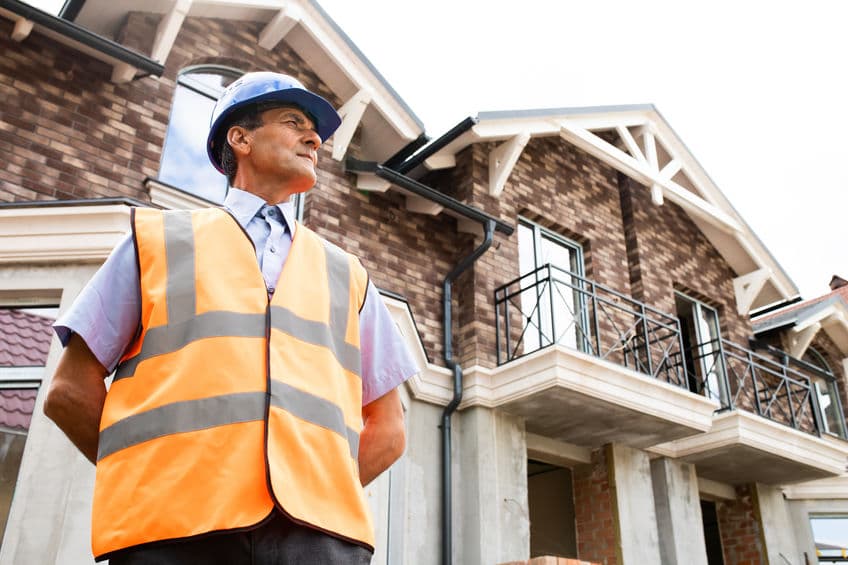California Balcony Inspection Law: What Property Owners Need to Know

Table of Contents
Have you ever stepped onto a balcony and wondered if it’s actually safe? You’re not alone. Over the years, tragic incidents have pushed California lawmakers to take action. Now, property owners must comply with SB 721 and SB 326, two laws designed to ensure that balconies, decks, and elevated walkways are structurally sound and safe for residents.
But what do these laws mean for you? If you own an apartment building, condo, or multi-family property, you’ll need to schedule regular inspections—or risk facing hefty fines. Here’s everything you need to know about California’s balcony inspection laws and how to stay compliant.
What Are SB 721 and SB 326?
Both SB 721 and SB 326 focus on the safety of Exterior Elevated Elements (EEEs), such as balconies, decks, and walkways. These laws ensure that these structures are regularly inspected and maintained to prevent deterioration, water damage, and potential collapse.
- SB 721 (Apartment Buildings) – If you own a multi-family residential property (like an apartment building with three or more units), you must have your balconies and exterior walkways inspected every six years.
- SB 326 (Condominiums & HOAs) – This law applies to condos and townhomes managed by Homeowners Associations (HOAs). Inspections must be done every nine years to identify potential hazards.
The first round of inspections for both laws must be completed by January 1, 2026—so the clock is ticking!
Who Needs a Balcony Inspection?
If your building has an exterior elevated element that is six feet or higher off the ground and relies on wood-based materials for support, you need an inspection. These elements include:
- Balconies
- Decks
- Walkways
- Stairways
- Porches
These inspections must be conducted by licensed professionals, such as structural engineers, architects, or certified building inspectors.
What Happens During an Inspection?
A licensed inspector will examine the structural integrity of your balconies and decks, checking for:
- Water damage
- Wood rot
- Corrosion of metal fasteners
- Signs of deterioration
If any issues are found, the inspector will recommend repairs—and property owners are legally required to address them within a specific timeframe. Ignoring inspection requirements can result in fines of up to $500 per day.
What Are the Consequences of Non-Compliance?
Failing to comply with these laws isn’t just a minor inconvenience—it can be expensive and dangerous. If you don’t complete the required inspections, you may face:
- Hefty fines – Ranging from $100 to $500 per day for non-compliance.
- Legal liability – If a balcony collapses due to negligence, you could be held responsible.
Loss of insurance coverage – Some insurers may refuse to cover buildings that haven’t been inspected.
Contact DrBalcony for a professional inspection!
Ensure the safety of your balcony and living space with DrBalcony - We're a Tech Engineering firm that specializes in California SB326 & SB721 balcony inspections. Over 300+ completed projects in California.
Request A Free EstimateClick To CallHow to Stay Compliant?
The best way to stay ahead of the law is to schedule your inspection early. At DrBalcony, we specialize in SB 721 and SB 326 inspections, helping property owners and HOAs meet legal requirements without hassle. Our team of licensed professionals provides thorough assessments, easy-to-understand reports, and guidance on necessary repairs.
Don’t wait until the last minute! Contact DrBalcony today to book your California balcony inspection and ensure your property is safe and compliant.
Final Thoughts
California’s balcony inspection laws aren’t just another regulation—they’re a crucial step toward preventing accidents and keeping residents safe. If you own a condo, apartment, or multi-family property, getting ahead of these requirements will save you stress, money, and potential legal trouble.
🔹 Need help with your inspection? Contact DrBalcony today and get your property compliant before the 2026 deadline!
FAQ Section: Top Questions & Answers
My property is well-maintained. Do I really need SB-326/SB-721 inspections?
YES! Even with excellent maintenance, hidden issues can develop due to construction errors, material flaws, or severe weather exposure. Inspections are about ensuring those don’t turn into major problems.
Our balconies were inspected a few years ago – isn't that enough?
Unfortunately, no. California laws mandate inspections on a set schedule, often every 6 years. Deterioration can happen quickly, making regular assessments essential.
Can I use my regular handyman for the balcony inspection?
It’s not recommended. Unless they hold specific licenses (architect, structural engineer, etc.) their inspection won’t be considered valid for SB-326/SB-721 compliance.
What if the inspection uncovers major issues?
First, don’t panic! Early detection often means less extensive (and expensive) repairs are needed. Work with your inspector to prioritize fixes, and explore if they offer repair services for a streamlined solution.
I'm worried about the cost of inspections. Are there any resources to help?
Start by getting detailed quotes from multiple companies. Factor in that proactive inspections help you avoid even bigger costs down the line due to neglected problems. Some property management associations offer guidance on budgeting for balcony compliance.

